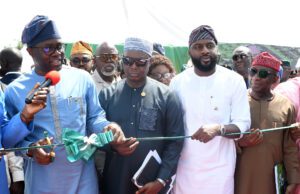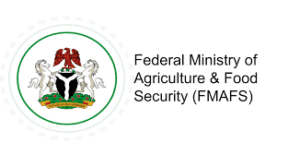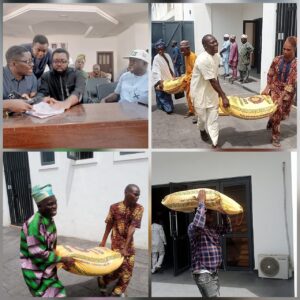
Experts urge Govts to address factors inhibiting ease of doing business
Experts have urged the three tiers of governments to address various issues affecting the ease of doing business, especially multiple taxation, for economy to thrive in Nigeria.
They spoke in an interview on Sunday in Ibadan, while reacting to the issue of multiple taxation across the states, now hindering ease of doing business.
In his contributions, the Chairman, Manufacturers Association of Nigeria (MAN), Mr Lanre Popoola in charge of Oyo, Osun, Ondo and Ekiti, called for the harmonisation of multiple taxations by the governments.
According to Popoola, this is to alleviate the sufferings of the citizens in the course of transacting their businesses.
He said that if this could be done, it would help in improving the ease of doing business in many parts of the country.
Popoola said that in terms of government policies, 2022 was not a good year for the manufacturers.
“This was due to some factors including multiple taxations, touts being employed to harass manufacturers and closing down of some companies because of taxation.
“The local government is coming to tax you on the same thing you have paid to the state government.
“We have asked for the harmonisation of taxes in Oyo State, they did a little bit of it and we are looking for more in 2023,” MAN Chairman said.
Also, the Chairman, Rice Farmers Association of Oyo State, Mr Samuel Akinade decried the increase in the prices of transportation due to multiple taxes being paid by the transporters.
Akinade called on the governments to make all rural roads leading to the farmlands motorable, while all other critical infrastructure should be improved.
“There is need to bring down the cost of production through the provision of infrastructure and reduction in the prices of motor spareparts.
“Our buyers are calculating the amount they bought commodities from us by including the amount it cost them to transport the commodities to the markets and factor other costs into the whole transaction,” Akinade said.
Commenting, a Financial Consultant, Mr Tunji Adepeju, said that government needed revenue to executive its numerous developmental projects.
According to Adepeju, one of the ways to get this done is through collection of taxes and this should not affect the ease of doing business.
“We cannot say the government should not borrow and at the same time say it should not take taxes. Many governments in developed countries run on taxes mainly from the citizens,” he said.
Adepeju noted that the only issue was the usurpation of Local Government duties by the State Governments.
According to him, in some cases, there are duplication of roles in the collection of taxes from the people, especially when it comes to going from one state to another.
He said that the 1999 Constitution Schedule Two, part four listed all the duties of the Local Governments.
“But, some of the states are doing what Local Governments should be doing or claim that they are collecting taxes jointly, using a consultant and they share commission across the board.
“So, Local Governments are the ones to collect taxes, but where the problem lies is when going to or through another state.
“If the person gets to Osun and presents tax evidence of Oyo, Osun will decline and demand another payment of taxes that would go into its coffers.
“But, there is a body called the Joint Tax Board that comprises all the Internal Revenue Services of across all the states of the federation and Federal Inland Revenue Service (FIRS) that agree on some taxes issues which should be binding.
“Due to the revenue drive, it has not been working as some people are seen on the highway blocking the roads.
“Once you get a haulage permit from one state it should cover the whole of the country, except for a localised tax for a particular state. One can sue any state or local to court, demanding illegal taxes,” Adepeju said.
He noted that taxes were important to support the government’s revenue because the oil revenue had dwindled.



